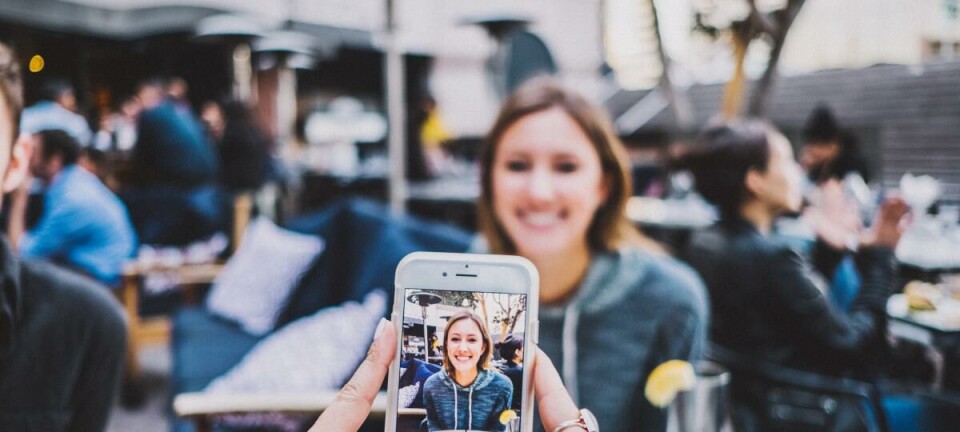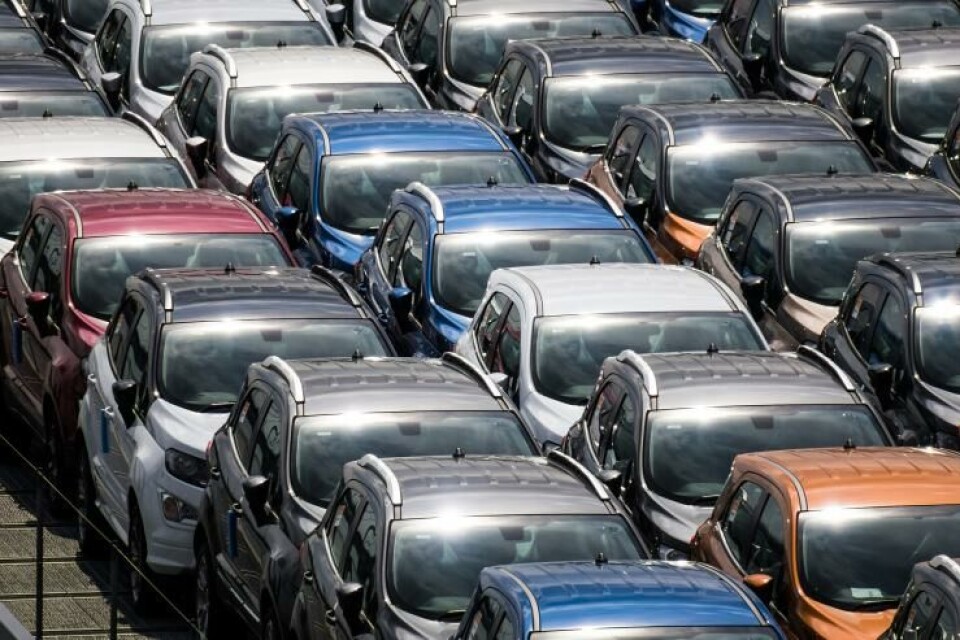article> Opinion/Politics
Filters, Dysmorphia and How We Stopped Recognising Ourselves in the Mirror

We increasingly see the world and ourselves through the lens of our smartphones which we then choose to distort to our pleasing with filters. But why do we do this so willingly?
by Sara Blanco
Illustrator & Contributing Writer
It is frequently said that social media has considerably damaged the collective self- esteem, especially for the younger audiences, since they are the main target. But these feelings of inferiority were not born with the new century. Then, where do they come from? As I see it, feeling insecure about oneself is a negative feeling that actually has its roots in a positive one: competitivity. Being competitive means being ambitious, not resigning to the current state of affairs, looking forward to progress. This is one of the keys to society, since progress is easier to achieve as a collective. Without other individuals to compete, we become conformist and do not aim for higher goals because we do not even picture them. Being confronted with the reality of other people doing better than we are is a motivation to become better ourselves.
Until here, the idea of a competition-driven society seems pretty utopian, does it not? But there are several problems in our idealistic picture.
The first problem arises when all this utopian spirit of competitivity is adapted to a capitalist model. Capitalism is characterized by making the work and the system alien to the individuals, since they no longer do what they do for themselves but in order to survive in a mechanism that they do not even understand. For example, I can go to the factory eight hours per day every day to make gears for cars that I never get to see. Then, one does no longer compete for a concrete goal (let’s say, making the best apple pie or having the most successful farm), but for developing tasks that are always part of a bigger, more abstract goal that does not have to do with us. I may want to be the fastest at making car gears, but the big picture is not just about making cars faster; after my gears are done there are other steps in the production chain that I have no idea about, and in the end, the perfection of my task has little to do with the final result (it is necessary but never sufficient on its own). This way competitivity becomes unhealthy; we compete without goals, but only to compete. We want to be better than the other, but not because what we want to achieve is important to us. Does a gear maker have to care about the cars?

The self-fulfilment has been erased from the initial natural need to compete, becoming mere comparison. This thirst for comparison becomes part of the system, which exploits the feeling turning it into inferiority. If there is no goal, we can never be satisfied. Then, we find ourselves climbing an infinite pyramid of artificial needs (I need to be the fastest gear maker, to have the best car, to look thinner, etc.). We are told what we need and we go work for it, without ever asking why (will I be satisfied when I get this car? Or will I desire the new best car as soon as it is available on the market?). The ugliest side of this dilemma, is whom we compare ourselves with. Obviously, this would be with people who are more successful than we are. But in a capitalist system, success is usually achieved by starting from a different baseline. I see my boss, and I want to have my own car factory one day. But my boss never made a gear in his life. He had a family who could afford university for him, private tutors when necessary, the right connections and then, with hard work he finally could own a factory. But I only have my hard work, and the rest of the ingredients for a successful equation do not really depend on me. Comparing myself with my boss, rather than motivating me for improving, will only make me miserable. However, it is not my intention to express here that without certain privileges it is completely impossible to be successful. Of course it is, and it is very admirable.
But the way to the top is longer, harder and not fairly comparable to the route made by the ones who were born there.
This is the base of the problem, that I hope does not taste too political. The second point relies on globalization. What could make me more miserable than comparing myself to others infinitely without any way of ever being satisfied? Comparing myself with literally everybody! In a globalized world we have the chance to be aware of how life is lived by different people in different cultures around the world. This is obviously very enriching, but when combined with our feelings of inferiority, it can be turned into a way of making us feel insecure in many different ways. Not only do I compare myself with people from different backgrounds than mine, but now also with people from different cultures around the world. It was already hard to compete with people who had way better chances to achieve success than I do, and now the problem is globally amplified. People from different cultures have different chances in life than I have, and compensating for such differences is not possible to me as an individual since it is a collective issue.
Then, leaving the capitalist analysis aside and going back to the topic of this article, we compare ourselves with our bosses, the people we see on TV, magazines, etc. Focusing on beauty cannons means that we are constantly trying to be as thin as, tanned, and attractive as people who clearly have different chances to achieve those looks than we do. This is highly amplified by social media, in which we compare ourselves not only to people who made it to be on TV, but to a much wider spectrum of people. Then, we see how the problem of our insecurity escalates by adding more and more individuals to the set of people that we compare ourselves with, in an unrealistic way.
The cherry on top of the cake of self-pity could not be other than Instagram filters. If capitalism and globalization were the demons haunting our self-esteem, Instagram filters are Satan incarnate.

Almost nine years ago, Snapchat was born, and with it the concept of adding a “filter” to photos that we now also use on Instagram. The app not only allowed to modify the illumination and colour values of the pictures (as Instagram does), but to change facial features and give them personalized special effects. This way, by using 3D modelling technology, the filters adapt to the biometric facial points of each face turning it into something else. Typically, this idea started as something funny and extravagant that turned people into dogs, cats or Mr. Potato. In very little time, the concept of using filters evolved to put makeup into our selfies without actually wearing makeup, making our eyes bigger, our skin smoother and our face thinner. The development of the concept turned into the idea of seeing ourselves as how we would look like with radical plastic surgery. The result? Getting more and more familiar with this distorted vision of ourselves, which starts seeming desirable rather than crazy.
In 2014, around 93 million selfies were taken per day according to Google Statistics, on Android devices alone. People, particularly the younger generations, are getting used to seeing themselves through pictures rather than in the mirror. Nowadays, beauty filters come incorporated within most smartphones, which include a front camera specifically designed for taking selfies. The world is changing, and with a new vision comes a new tool. The problem with this tool is that it does not reflect reality, but it shows us what we think we want to see. And I say “what we think we want to”, because the consequence of this constant distortion is no other than the feeling of inferiority.
We aim to resemble what we look like with a filter, that in the end is based on how people who satisfy very elevated beauty standards look. But those people have personal trainers, better make-up, plenty of time, a different life style, surgery and photoshop.

Hence, first we distort our role models in order to make them our beauty standards, and then we distort ourselves, so we can confront on a daily basis with the unachievable. The industry of makeup is going through one of its best moments and the most affordable aesthetic procedures (like lip fillers or teeth whitening) are booming. Wanting to be the best version of ourselves has turned into wanting to be something that we were never meant to be. As a part of the pyramid of artificial needs, there is always someone making a profit from these new desires, and someone feeling miserable because of them. In this context, it is key to build our own standards and to constantly question why we want what we want. As long as we remember that every ambition should ultimately aim to true self-fulfilment, we can still blink an eye to the mirror.





